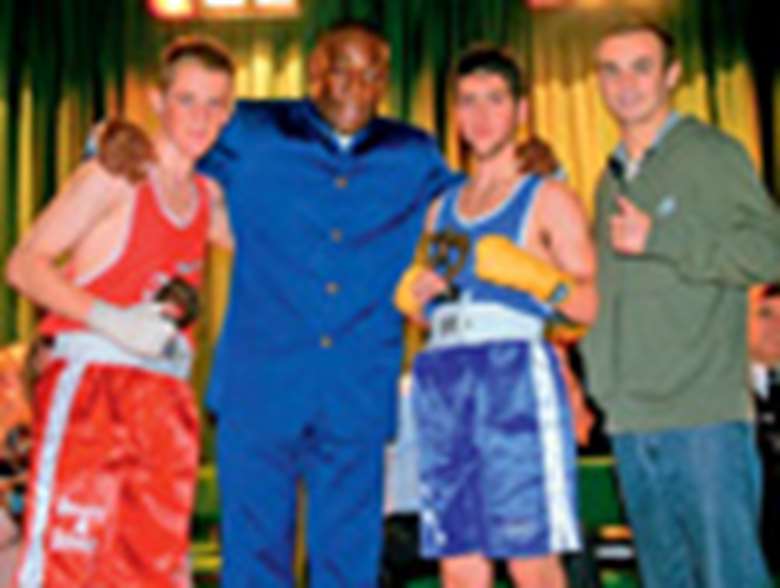Boxing sessions provide firm focus
Tuesday, September 29, 2009
Learning the rules and techniques of a sport can have far-reaching effects on pupils, helping to improve their focus beyond the gym. Jo Stephenson looks at the Priory School in Kent, which is offering boxing sessions to its pupils.

Objectives: Boxing is not without its critics but one secondary school in Kent has shown it can be a valuable addition to extended services. Neil Miller, deputy head at The Priory School, was keen to include boxing in activities on offer to pupils. "I'm an ex-boxer and have seen what boxing has done for numerous people, helping them turn their lives around and giving them focus, discipline and control," he says. Non-contact boxing offers young people the chance to get fit and learn boxing skills using punch bags and pads.
What was done: The school joined forces with Boxing4Schools, an organisation founded by former heavyweight boxer and boxing coach Wayne Llewellyn, and established an after-school non-contact boxing club for boys and girls aged 11 to 16. They then set up a contact boxing club for pupils aged 13 and over. The school now hosts the Frank Bruno Boxing Academy, founded by former boxing champion Bruno, Llewellyn, Miller and British Olympic boxing coach Terry Edwards. The academy offers post-16 education to promising young boxers, who study for qualifications alongside training. They also help out at the after-school clubs. In addition, the school runs non-contact sessions for young people referred by agencies like the local youth offending team and those at risk of being not in education, employment or training and works with three local primary schools to offer non-contact training to pupils from Gypsy, Roma and Traveller families. All Priory pupils get to try non-contact boxing in PE lessons.
The issues: Miller admits boxing is not everyone's cup of tea but says the focus at Priory is on fitness and skill. "There was prejudice about the word 'boxing' but the head was really supportive and we focused on non-contact to start with," he says. Children cannot take part in contact boxing without parents' consent, he stresses, and fully qualified coaches ensure sessions are safe. There are no problems with children practising in the playground, something schools may be worried about. "When it's taught by people who know what they're doing then it instils discipline so that doesn't happen," says Miller.
Outcomes: Miller has seen young people change through non-contact and contact boxing. "It raises self- esteem and confidence considerably," he says. "You see them develop as a person. Some have anger issues but they become more focused and disciplined as a consequence." Individual students are now more focused on school work, boosting achievement and attendance. The school has hosted three showcases giving young people the chance to demonstrate their skills to family and friends.
TOP TIPS
Do
- Use coaches with past experience of boxing rather than sending teachers on training courses. Experience is vital
- Work closely with the national governing body, the Amateur Boxing Association of England
- Be very clear to parents that this is not about producing "fighters" but training skilled athletes
Don't
- Use the word "fighting". Talk about "boxing" and "bouts"
- Give up even if people are negative about the idea to start with.




